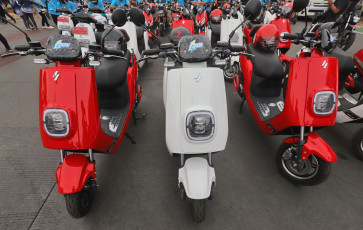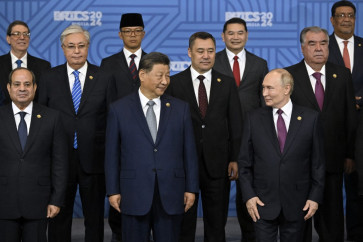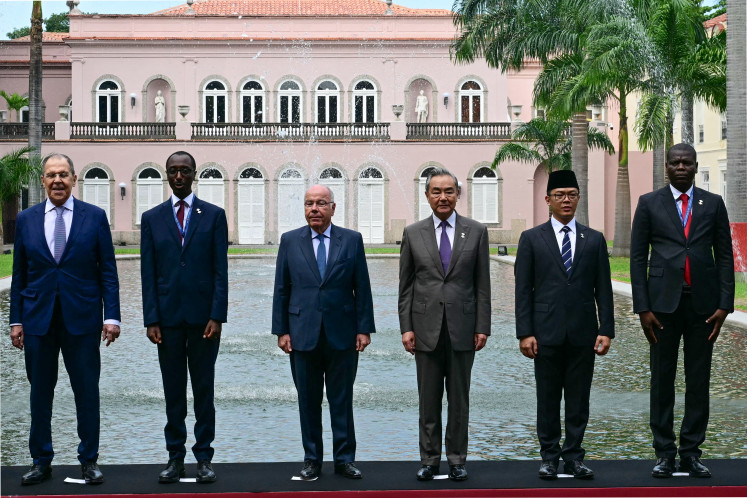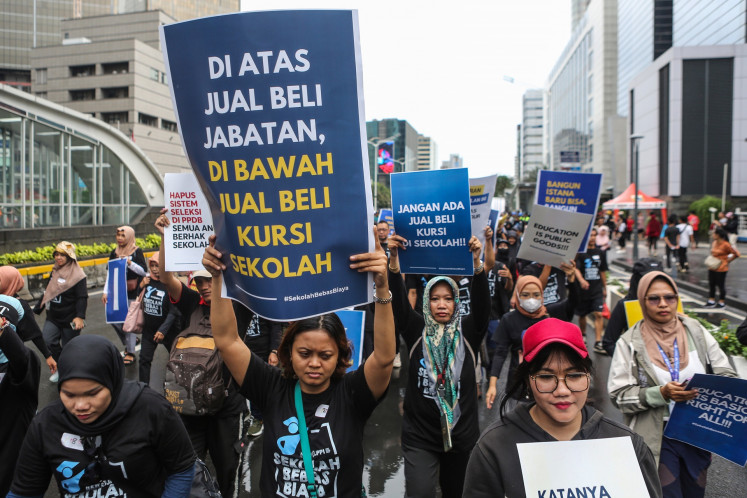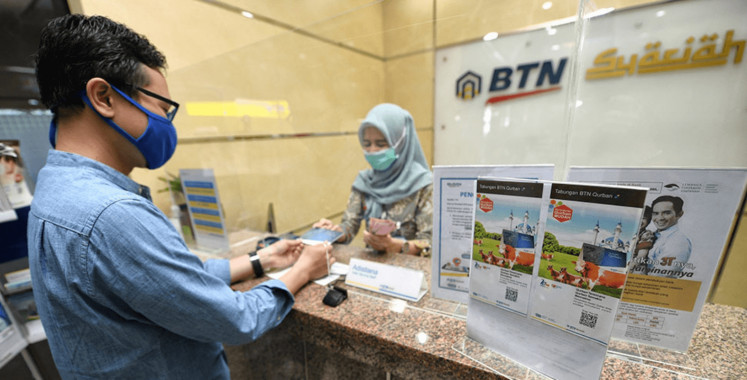Trader ‘forged’ ingredient label in cough syrup case
Small firm found selling ‘industrial-grade’ EG, DG to pharma suppliers
Change text size
Gift Premium Articles
to Anyone
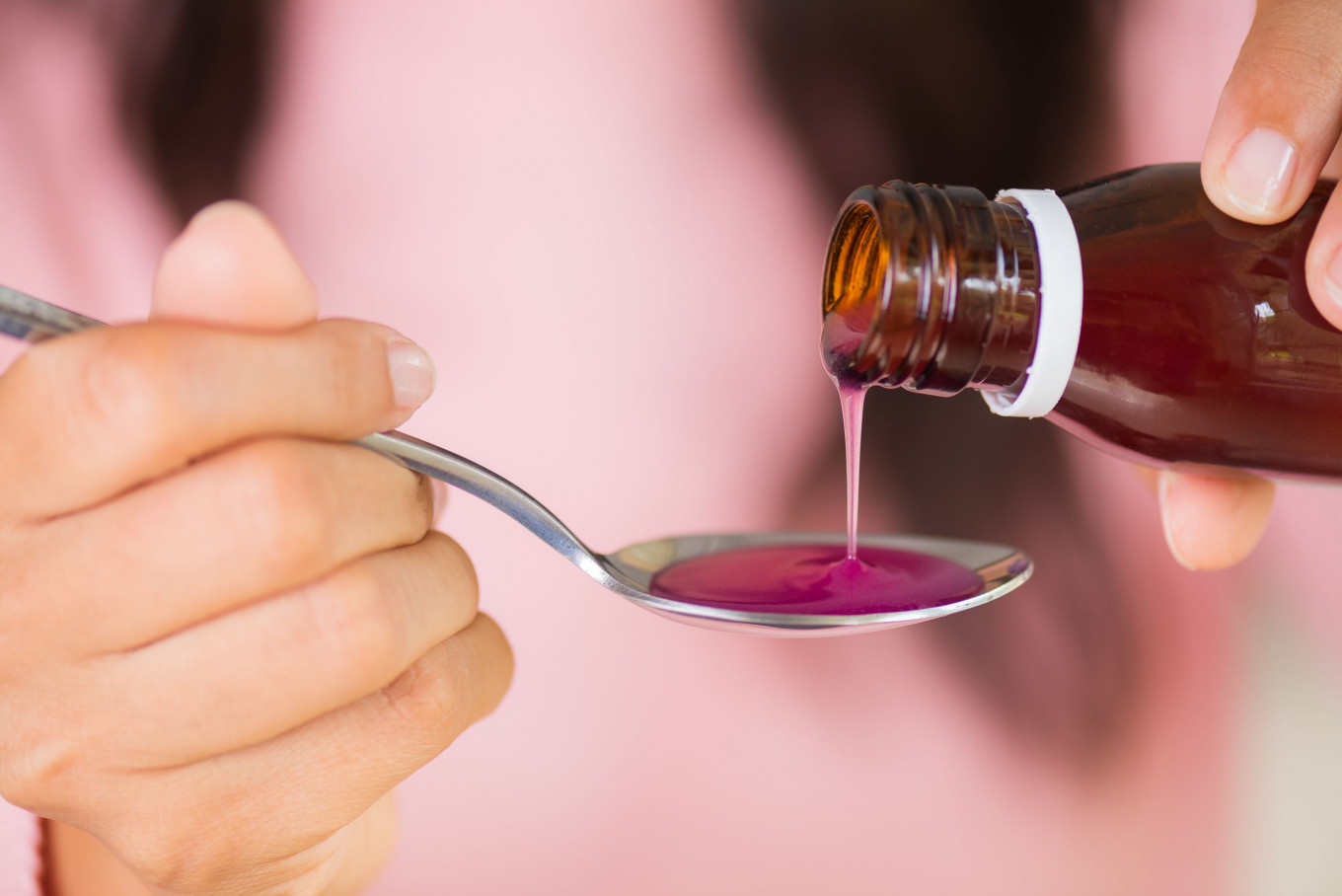
T
he National Police said on Monday that a local trader of industrial-grade chemicals sold them as pharmaceutical-grade, leading to their use in medicated syrups that authorities suspect may have caused deaths of more than 200 children across the country.
Authorities have said two ingredients, ethylene glycol (EG) and diethyelene glycol (DEG), which were found in some syrup-based paracetamol medications linked to acute kidney injury that many of the children had suffered.
The two ingredients are used in antifreeze, brake fluids and other industrial applications, but also as a cheaper alternative in some pharmaceutical products to glycerine, a solvent or thickening agent used in many cough syrups. They can be toxic and lead to acute kidney injury.
Senior police official Brig. Gen. Pipit Rismanto told reporters that authorities had found that CV Samudera Chemical sold “industrial-grade” EG and DEG as pharmaceutical-grade propylene glycol manufactured by Dow Chemical Thailand, and supplied them to distributors of local drugmakers.
Police had arrested and charged officials at Samudera and its distributor CV Anugrah Perdana Gemilang. More suspects may be named as the investigation continued, Pipit said.
Reuters could not immediately reach Samudera Chemical or its distributor for comment.
Riswan Sipayung, president director of Dow Indonesia, said the company was “committed to working with the government, distributors and industry partners to do our part in mitigating the pervasive and urgent issue of counterfeiting and tackling this industry-wide problem with all stakeholders”.
WHO investigates
The World Health Organization had started an investigation on whether there was any connection between manufacturers whose contaminated cough syrups it had linked to the deaths of more than 300 children in three countries, a person familiar with the matter told Reuters.
Citing “unacceptable levels” of toxins in the products, the WHO was seeking more information about the specific raw materials used by six manufacturers in India and Indonesia to produce the medicines linked to the recent deaths, as well as whether the companies obtained them from some of the same suppliers, the person said.
The WHO has not named any suppliers.
The WHO was also considering whether to advise families globally to reassess the use of cough syrups for children in general while questions over the safety of some of these products were unresolved, the person said. WHO experts were evaluating the evidence for whether, or when, such products were medically necessary for children, they said.
The deaths of children from acute kidney injury began in July 2022 in Gambia, followed by cases in Indonesia and Uzbekistan. The WHO has said the deaths are linked to over-the-counter cough syrups the children took for common illnesses and which contained a known toxin, either diethylene glycol or ethylene glycol.
To date, the WHO has identified six drugmakers in India and Indonesia that produced the syrups. These manufacturers have either declined to comment on the investigation or have denied using contaminated materials that contributed to any deaths.
Reuters has no evidence of wrongdoing by the companies the WHO has named.
Twenty-five Indonesian families of some of the children demanded restitution as a court this month started hearing their class action lawsuit against government agencies and pharmaceutical firms.
The Food and Drug Monitoring Agency (BPOM) has said the spike in the cases had occurred because several parties “exploited a gap in the safety guarantee system” and pharmaceutical companies did not sufficiently check the raw ingredients they used.


